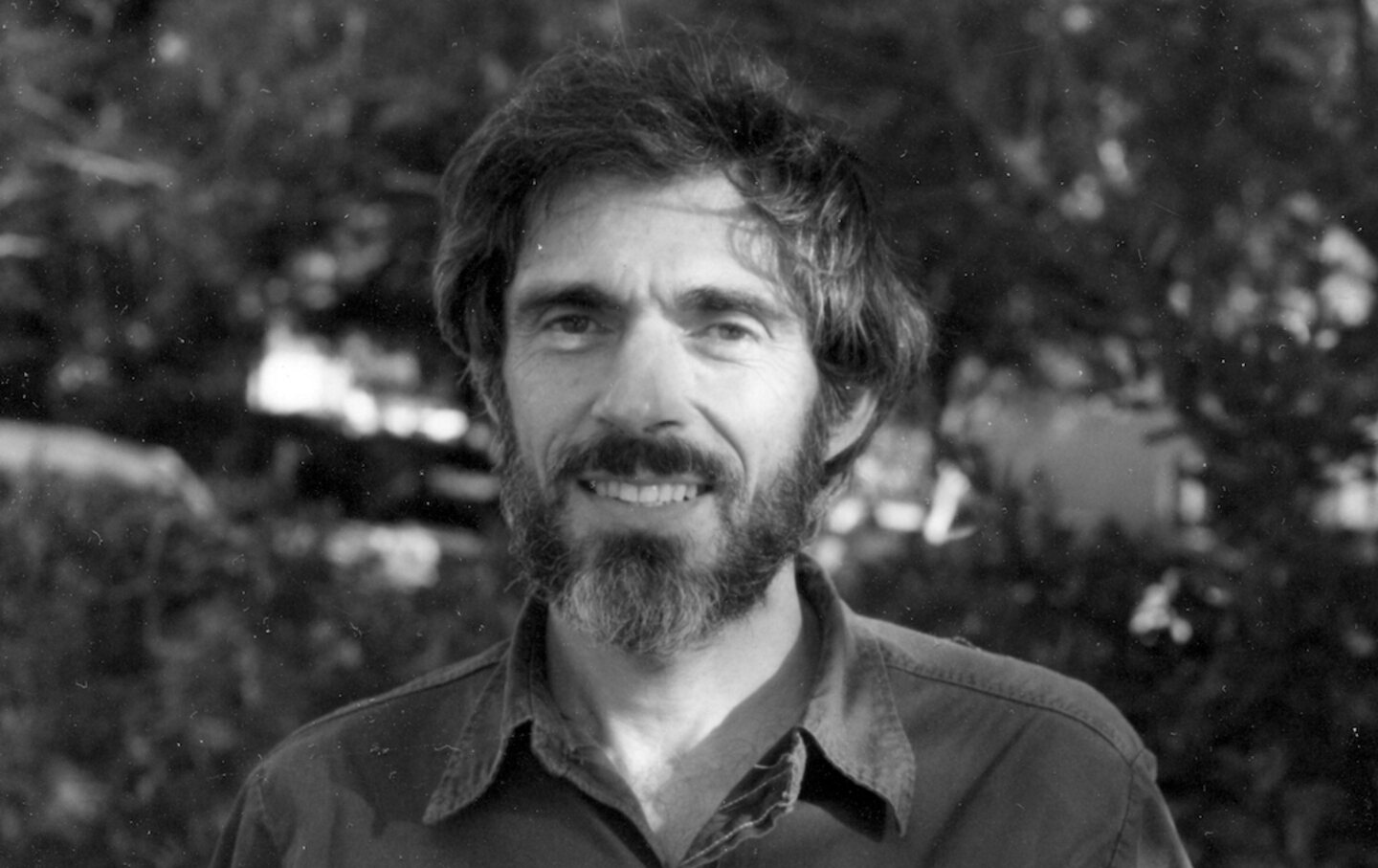From McCarthyism to Citizens United.
From McCarthyism to “Citizens United”
On this episode of The Time of Monsters, Douglas Bell discusses Chandler Davis and the contest over free speech.

Here's where to find podcasts from The Nation. Political talk without the boring parts, featuring the writers, activists and artists who shape the news, from a progressive perspective.
The mathematician Chandler Davis, who died in 2002 at age 96, was one of the notable victims of the second Red Scare. In 1960, Davis was sentenced to six months in prison for refusing to answer questions about his membership in the Communist Party. Davis’s lawyers defended him with the innovative legal argument that the First Amendment barred such questioning. While Davis lost in the courts, his legal battles were still an important effort in a larger battle to extend the parameters on political speech. Davis’s story is told in a new book, The Prosecution of Professor Chandler Davis by Steve Batterson. Siobhan Robert’s obituary for Davis ran in The Nation.
On this episode of The Time of Monsters, I talked to journalist Doug Bell, who knew Chandler Davis, about this book and Davis’s larger place in history. We take up the history of anti-communism and how it has limited free speech, the legal philosophy of Alexander Meiklejohn, and the reactionary Supreme Court's use of the First Amendment to expand corporate power.
Advertising Inquiries: https://redcircle.com/brands
Privacy & Opt-Out: https://redcircle.com/privacy

Chandler Davis photographed in 1975.
(Wikimedia Commons)The mathematician Chandler Davis, who died in 2022 at age 96, was one of the notable victims of the second Red Scare. In 1960, Davis was sentenced to six months in prison for refusing to answer questions about his membership in the Communist Party. Davis’s lawyers defended him with the innovative legal argument that the First Amendment barred such questioning. While Davis lost in the courts, his legal battles were still an important effort in a larger battle to extend the parameters on political speech. Davis’s story is told in a new book, The Prosecution of Professor Chandler Davis, by Steve Batterson. Siobhan Robert’s obituary for Davis ran in The Nation.
On this episode of The Time of Monsters, I talked to journalist Doug Bell, who knew Chandler Davis, about this book and Davis’s larger place in history. We take up the history of anti-communism and how it has limited free speech, the legal philosophy of Alexander Meiklejohn, and the reactionary Supreme Court’s use of the First Amendment to expand corporate power.

Here's where to find podcasts from The Nation. Political talk without the boring parts, featuring the writers, activists and artists who shape the news, from a progressive perspective.
Even as he imposes authoritarianism on the United States, Donald Trump has given a new lease on life to the center left in many other countries. Canada is holding an election at the end of April under the shadow of the American presidents threat to turn it into the 51st state. Until Trump’s inauguration, the Conservative Party of Canada had a commanding lead. But voters are changing their minds fast and it now looks like the Liberal Party under new leader Mark Carney will win the election.
To talk about the quick revolution in Canadian politics I spoke to Luke Savage, a widely published journalist and substracker. We take up not just Canada’s likely rejection of Trumpism but also the question of whether Carney’s technocratic centrism really offers an alternative. If there is to be a new Canadian nationalism, will it have more substance than Carney offers?
Advertising Inquiries: https://redcircle.com/brands
Privacy & Opt-Out: https://redcircle.com/privacy
Subscribe to The Nation to Support all of our podcasts
Hold the powerful to account by supporting The Nation
The chaos and cruelty of the Trump administration reaches new lows each week.
Trump’s catastrophic “Liberation Day” has wreaked havoc on the world economy and set up yet another constitutional crisis at home. Plainclothes officers continue to abduct university students off the streets. So-called “enemy aliens” are flown abroad to a mega prison against the orders of the courts. And Signalgate promises to be the first of many incompetence scandals that expose the brutal violence at the core of the American empire.
At a time when elite universities, powerful law firms, and influential media outlets are capitulating to Trump’s intimidation, The Nation is more determined than ever before to hold the powerful to account.
In just the last month, we’ve published reporting on how Trump outsources his mass deportation agenda to other countries, exposed the administration’s appeal to obscure laws to carry out its repressive agenda, and amplified the voices of brave student activists targeted by universities.
We also continue to tell the stories of those who fight back against Trump and Musk, whether on the streets in growing protest movements, in town halls across the country, or in critical state elections—like Wisconsin’s recent state Supreme Court race—that provide a model for resisting Trumpism and prove that Musk can’t buy our democracy.
This is the journalism that matters in 2025. But we can’t do this without you. As a reader-supported publication, we rely on the support of generous donors. Please, help make our essential independent journalism possible with a donation today.
In solidarity,
The Editors
The Nation
